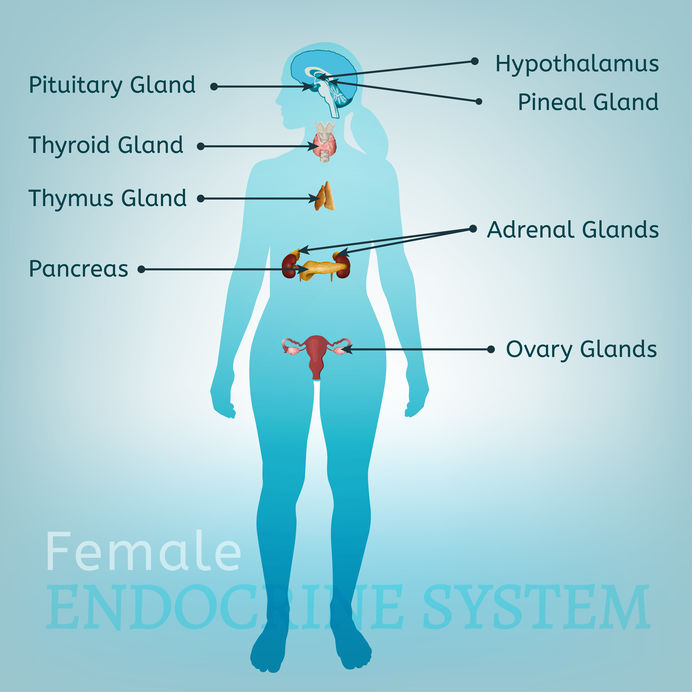What Do Hormones Do And Why They Matter
WHAT DO HORMONES DO?
Hormones are chemical messengers and without them, proper functioning in our body does not occur. They control everything from reproduction, digestion, metabolism, emotions, and even hunger and satiety. When our hormones function properly, we feel great and when they do not, we can have health issues that make us miserable.

Let’s look at a few key hormone systems and you will get the picture of how important they are.
Hypothalamus
The Hypothalamus signals the production of other hormones and in doing so, helps regulate things like hunger, moods, sleep, body temperature, and sex drive.
Thymus
The thymus produces the hormone thymosin, which helps regulate the immune system. The thymus shrinks as we age but scientists are not sure it is supposed to, which means that, perhaps, good nutrition could help maintain immune function as we age.
Pancreas
Insulin produced in the pancreas is a key hormone and its sole function is to help blood sugar get into the cells so we have the energy we need for our cells to function. However, too much insulin has been implicated in many health issues.
Thyroid
Hormones produced by our thyroid are associated with metabolism and heart rate. If you have trouble losing weight – your thyroid may not be functioning optimally.
Adrenals
There are many hormones produced by the adrenal glands but their main function is to help us cope with stress, both physical and mental. Because of this, the adrenals rule the roost in the body. This is because protecting us from danger is considered to be one of the most significant systems in the body and because of that when we are stressed, the adrenals can cause all kinds of havoc with other systems.
Pituitary
This is a master endocrine gland that produces hormones that tell other glands and organs to produce more hormones. However, hormones from the adrenals like cortisol or insulin from the pancreas can exert pressure on the pituitary and interfere with other hormone relationships where the pituitary is involved.
Of course, the hormones that often concern most people are the reproductive hormones.
In women, the ovaries produce estrogen, progesterone, and small amounts of testosterone before menopause. After menopause, it is the adrenals that produce these hormones to keep women healthy.
For men, the testes produce testosterone and small amounts of estrogen and progesterone.
These are just a few hormonal relationships – it really is complex and often hormone problems are a result of several hormones exerting influence in a way that causes more than one issue. Food and lifestyle can help immensely to feed the various body parts so they work in a more balanced way. A holistic nutrition professional can help you do this.
Balanced hormones are the key to having a body in balance. Even small imbalances can cause an issue. Getting a proper diagnosis is key and from there, decisions can be made to help correct the issues.

